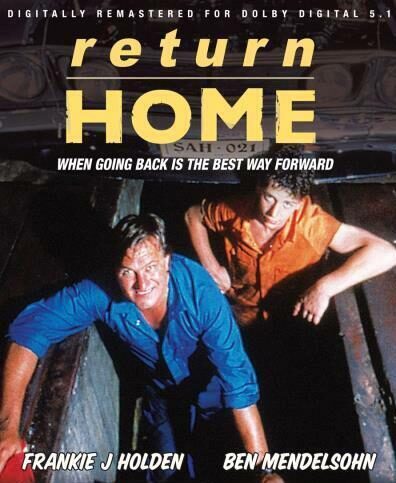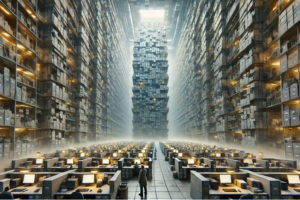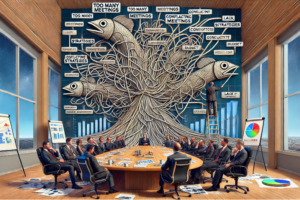
What Return Home (1990) can teach us about the future of small businesses in Australia
Why local businesses in Australia are struggling today
The sun sets over suburban Adelaide, casting long shadows on quiet streets. Once, these streets were lined with thriving small businesses—local garages, family-run butcher shops, and corner stores where shopkeepers knew their customers by name.
Steve, the owner of a small auto repair shop, has spent years fixing cars and building trust with his community. But now, a new shopping centre has opened nearby, pulling customers away with lower prices and a flashier experience. One by one, local businesses in Adelaide start losing their loyal customers.
Even Steve considers changing course—turning part of his repair shop into a video rental store. It seems like the next big thing. But what Steve doesn’t know—and what we now do—is that video rental stores were just another short-lived trend.
His story isn’t unique. Small businesses in Australia today face the same pressures—corporate giants, e-commerce, and automation are reshaping the market.
In Return Home, director Ray Argall captured this struggle with a quiet, reflective realism. Over three decades later, his film still feels relevant in an era where local businesses fight against large-scale commercial forces.

The illusion of progress: Why bigger isn’t always better
At first glance, shopping centres, franchises, and online retailers seem like progress. Bigger, faster, more convenient.
But real progress isn’t just about size or efficiency—it’s about survival and adaptability.
Steve’s brother Noel, a corporate insurance broker in Melbourne, believes in scale, automation, and corporate systems. To him, small business owners should either grow or get out.
But here’s the reality: What happens when the economy shifts? When global supply chains break down? When corporate policies fail to serve local communities?
Why local businesses in Australia are more resilient than big corporations
Think of big business like a massive cruise ship—built for smooth sailing, designed for scale, optimized for speed.
But when conditions change—economic downturns, inflation, supply chain disruptions—the same size that made it powerful now makes it fragile.
- It can’t turn fast enough to avoid disaster.
- It can’t slow down fast enough to prevent collision.
- It can’t adapt fast enough to survive the storm.
Now, think of a local business like a handcrafted wooden boat—built for its environment, designed for resilience, and capable of adjusting course instantly.
- Local businesses are accountable. When Steve makes a mistake, he fixes it. When a corporation makes a mistake, they hide behind policies.
- Local businesses are adaptable. A small business can pivot overnight. A big corporation takes months or years to respond.
- Local businesses have skin in the game. Owners live the consequences of their decisions. Corporate executives collect bonuses regardless of outcomes.
When the Australian business landscape changes, who do you think will still be standing?
How small businesses in Australia can compete and win
The lesson from Return Home isn’t just about nostalgia—it’s about creating a future where local businesses thrive despite competition from global giants.
💡 What small businesses must focus on to stay ahead:
- Strengthen local identity – Build real customer relationships based on trust, authenticity, and community connection.
- Leverage digital tools wisely – Use technology to enhance service, not replace human interaction.
- Stay flexible and adaptive – Don’t follow the giants—navigate your own course by focusing on local strengths.
🚀 In Return Home, Steve wasn’t sure if his business had a future. But today, small business owners in Australia can create their own path forward.
The future doesn’t belong to the biggest—it belongs to those who know how to navigate it. Those who know how to adapt. Those who know how to endure.
The future of local business in Australia: How to stay resilient
💡 Are you feeling the pressure of rising competition, digital disruption, or changing customer habits? You’re not alone.
At Consuledge, we help Aussie small businesses build resilience, adapt to change, and stay competitive—without losing what makes them unique.
How we can help your business thrive
Stand out from corporate giants – Leverage what big businesses can’t—trust, authenticity, and community connections.
Optimize with smart technology – Streamline operations without losing your personal touch.
Turn uncertainty into opportunity – Develop an adaptive business model built for long-term survival.
📩 Reach out to us today! Whether you’re looking for a fresh strategy, digital tools, or ways to strengthen your business against industry changes, we’re here to help.
Read more about same topic : Breaking the “Colesworths” Duopoly: A Path to Fairer Grocery Retail




